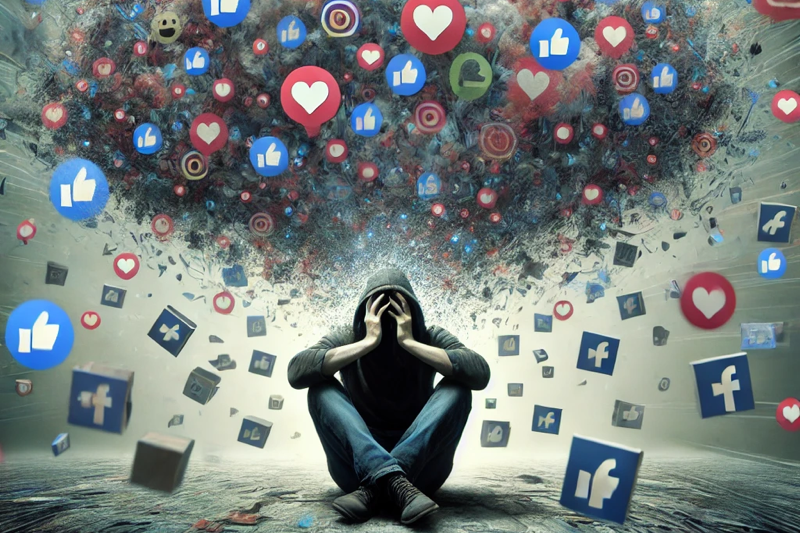Jay Shetty and Mel Robbins—the combination always impresses me and blows my mind. Here are some amazing learnings and quotes about the “let them” theory in the episode that I’d like to share.
3 Ways to React to Impacts from Others
- See things with good intentions.🌟
For example, if people forget to do the things they’ve committed to, I can choose to believe they may have had sudden, higher-priority tasks derail their plans, and they do mean to do it later.
- Remind myself there’s something I can do about this.💡
Whether it’s completing the things myself or having a conversation with the people—especially those close to me who have impacted me—I can always remind myself that these relationships (including but not limited to family, friends, and romantic partners) are mine, and I have the responsibility to take proactive action from my side.
Then, if I have tried to sit down with them and clearly express my needs and feelings, but they still don’t prioritize what I expect, I move on to the third step.
- Let them be themselves 🙆🏻♀️, and face the reality of what they reveal to me.
There may be times when I’ve had the conversation, it’s clear they’re capable, but they just won’t do it. Then I need to come back to the second step and ask myself, “Is this kind of behavior what I deserve?” or “Is this what I’m willing to accept from someone?” Then, make my decision and move on.
🚨 Mel’s Reminder🚨
Mel shared that in relationships, the kind of invisible distance, frustration, and resentment often arises in two ways:
- People who can’t detach from their emotions and say “let them,” meaning they don’t fully let the other person be who they are. They also fail to do the “let me” part, where they take responsibility for expressing in a mature way what they need and how the other person’s behavior impacts them.
- They make the request, and when the other person doesn’t do it, they start making excuses. Resentment builds, and they stay in a situation where they know exactly who someone is yet wish that person would change, living in a fantasy rather than accepting reality.
Think About Energy and Time Like Money
Jay shared that if we start looking at our energy and time as if we have to pay for every thought about others, we’ll be startled by how many “dollars” we’re wasting.

This theory really encourages me. “Time is money” is a well-known quote for most people, but the lack of attention to time doesn’t affect us too deeply. When we talk about “energy,” however, it’s quite specific, and everyone wants to prevent it from being robbed by worthless things like unreasonable abuse, irrational anger, etc. It’s a really powerful and useful mindset.
Gladly Accept and Honor Disappointed Moments
Mel shared a point of view about handling others’ disappointment. She gave an example: if we don’t go home to spend the holidays with family, our parents might be disappointed. But we don’t have to see it as a tragedy or feel guilty. Instead, we can see it as something beautiful—no one wants to feel “unimportant,” so having someone disappointed by our absence can be seen as a warm sentiment. At the same time, we honor their experience of being human.
This perspective blew my mind because I used to see such situations as trade-offs or moments of conflict. But actually, by honestly facing these disappointments, we can see that everyone gains some of the most profound human emotions and experiences, making all of us richer in our shared humanity.
Leave a Space for Struggle and Growth
Mel shared with Jay the fact that the person working hardest on their health is often the one who feels unhealthy, because they know they want to be healthier to get unstuck. If we come in with judgment and assumptions, that just adds more pressure to someone who is already deeply conflicted.
Here are three quotes from Mel that I want to keep in mind, reminding myself to give space to people who are at rock bottom and trust they can grow:
- You come in and impose it. It actually says, ‘I don’t believe you can do this.
- Overcaring is over-enabling that person and overwhelming that person.
- Create an environment that supports their healing, not stepping in and doing it.
Let Them, and Free Myself
Mel and Jay discussed how social media triggers overthinking: worrying about how followers or random visitors might comment on photos, filters, captions, etc. Mel pointed out that we’re overvaluing something we can never control. An average person has about 70,000 fleeting thoughts a day, and we can’t even fully control our own thoughts—so it’s unreasonable to expect any post to guarantee what others will think.

Here’s my favorite quote from the episode, and it’s a harsh wake-up call for me to see how I handle others’ negative thoughts and my own expression:
You can’t allow yourself to express yourself there, then it’s going to go everywhere where you edit yourself because you’re not just letting people think negative thoughts.
I realized that when I allow others’ negative thoughts, especially knowing I can’t control them anyway, I free myself as well.
Taking Responsibility Is Where My Power Lies
There are many examples that point to the same concept: letting people reveal who they are, then figuring out where I stand. After that, it’s my turn to take responsibility in friendships, romantic relationships, family bonds, and so on. When I choose who I spend time with and how I respond, that’s where my power lies.
Note: This power comes from the actions I can control, not from the things outside my control that belong to someone else’s willingness. That’s the “let them” part.
Most Things We Pursue Are in Limitless Supply
Mel mentioned a view similar to what I read in The Book of Joy: success, happiness, love, etc. are in limitless supply. It’s not a “1 or 0” game or a single “cake” that everyone must fight over. The good news is that we can learn from people who have already shown us the possibilities and let them lead the way for us to follow.
In closing, I want to thank Jay Shetty and Mel Robbins—two amazing speakers, authors, and podcasters—once again. Their words always encourage me and remind me that I can become a better version of myself, and they help me see the world as more livable.
